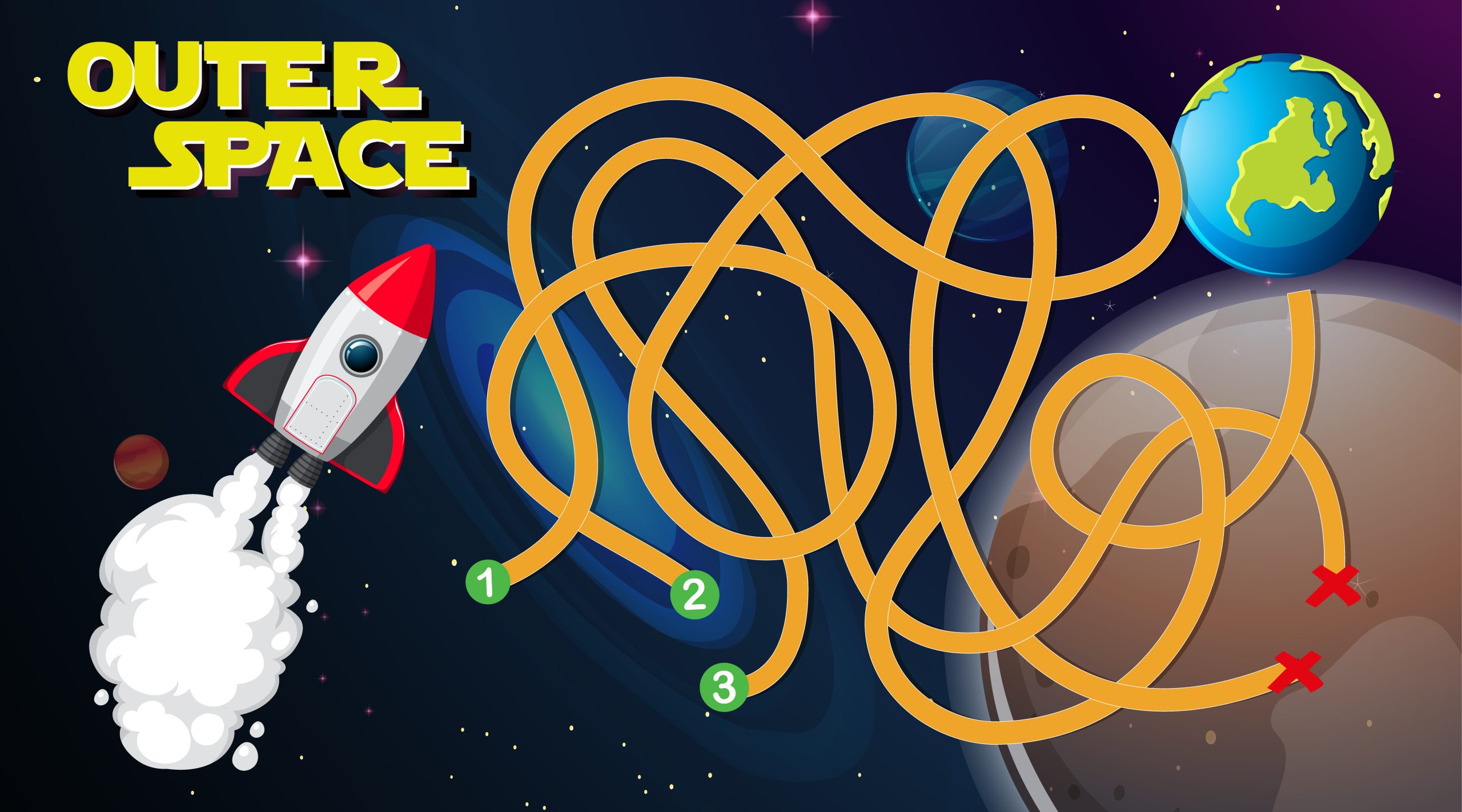Are you ready to challenge your knowledge of space? Do you think you have what it takes to solve some out-of-this-world riddles? Well, get ready, because the ‘What Am I Space Riddles for Kids’ are here to put your skills to the test! In this exciting article, you’ll embark on a cosmic journey and explore the mysteries of the universe through captivating riddles. Can you guess what celestial object or phenomenon is being described? These riddles will engage your mind and keep you entertained for hours. So, gather your family, put on your thinking caps, and let’s see if you have what it takes to unravel the secrets of the cosmos!
Riddle 1: The Beginning of Eternity
What is the beginning of eternity in the space riddle for kids? It’s a thought-provoking question that introduces us to the concept of eternity and its significance in different cultures. Eternity represents infinite time, a never-ending existence that transcends our understanding of time and space. In many cultures, eternity is associated with gods, heat, and planets, symbolizing their eternal nature and power.
When it comes to space exploration, the importance of space suits cannot be overstated. These suits play a crucial role in protecting astronauts from the harsh environment of outer space. They provide oxygen, regulate temperature, and shield against radiation. Without space suits, astronauts would not be able to survive in the extreme conditions beyond Earth’s atmosphere.
Speaking of the moon, did you know that it has the ability to cut its own hair? Well, not literally, but the moon’s changing appearance over time, known as lunar phases, can be compared to the moon trimming its hair. From a crescent to a full moon and back again, understanding lunar phases is fascinating and helps us appreciate the beauty of our natural satellite.
Lastly, let’s talk about keys. Keys hold symbolic meaning in various cultures and mythologies. They represent knowledge, power, and access to hidden realms. Just like keys unlock doors, they unlock opportunities and possibilities. In the context of space riddles, keys can be seen as a metaphor for unlocking the mysteries of the universe, encouraging curiosity and exploration.
Riddle 2: The Torn Suit
You tear your suit while walking in space, what happens next? In space, a torn suit can be a serious problem. The vacuum of space doesn’t provide any air or pressure, which means that a tear in your suit could lead to a rapid loss of oxygen and a potentially life-threatening situation. Repairing a torn suit in space is crucial for the safety of astronauts. In order to fix a tear, astronauts carry out a series of procedures. They use special adhesive patches or tapes designed to withstand the harsh conditions of space. These patches are carefully applied to seal the tear and prevent any further loss of air. The significance of the moon’s hair in space is that it doesn’t exist. The moon is a celestial body made up of rock and doesn’t have any hair. Keys in outer space have unusual uses. They are not used for unlocking doors but are used as tools for various tasks like adjusting equipment or opening containers. When it comes to the connection between heat, planets, and gods in space, it refers to the fact that Mercury is the name of both a planet and a Roman god associated with heat. Lastly, the concept of time and space in relation to eternity is a deep philosophical question that explores the nature of existence and our place in the universe.
Riddle 3: Can the Moon Cut Its Own Hair
The moon’s inability to cut its own hair is an interesting aspect to consider in relation to the previous subtopic. While it may seem like a silly question, it actually raises some intriguing points about the moon and its role in the solar system. Here are three things to know about the moon and its relationship to hair cutting:
- How does the moon affect the Earth’s tides? The moon’s gravitational pull is responsible for creating the tides on Earth. As it orbits around our planet, its gravitational force pulls on the Earth’s oceans, causing them to bulge and creating high and low tides.
- Is it possible for the moon to cut its own hair? No, the moon cannot cut its own hair because it does not have any hair to begin with. The moon is a rocky celestial body with no living organisms or hair follicles.
- What is the significance of the moon’s dark side? The dark side of the moon, also known as the far side, refers to the side of the moon that is never visible from Earth. This is because the moon is tidally locked with Earth, meaning that it takes the same amount of time for the moon to rotate on its axis as it does to orbit around Earth. The dark side of the moon is of great interest to scientists, as it provides a unique perspective and allows for observations that are not possible from Earth.
Riddle 4: Made of Keys, No Locks
Continuing the exploration of space riddles, let’s delve into the intriguing riddle of being made of keys but having no locks. This riddle presents an interesting concept of keys without locks and its metaphorical meaning. It challenges us to think beyond the literal interpretation and explore deeper meanings.
One possible interpretation of this riddle is that it represents the idea of eternity and its connection to the beginning. Keys symbolize a way to unlock or access something, and in this riddle, they represent the beginning of time or existence. The absence of locks suggests that there is no end or limitation to this beginning, highlighting the concept of eternity.
Another way to interpret this riddle is by considering the significance of a torn suit and its impact on a man walking. The torn suit could represent vulnerability or imperfection, while the act of walking symbolizes the journey of life. In this context, the keys without locks might signify the potential within us to overcome obstacles and unlock our true potential, even in the face of adversity.
Additionally, the riddle prompts us to think about the moon’s ability to cut its own hair and the scientific explanation behind it. This refers to the phenomenon of lunar eclipses, where the Earth blocks the Sun’s light from reaching the moon, creating a shadow that appears to cut off a portion of the moon’s surface.
Lastly, this riddle presents a challenge in understanding the three aspects of god, heat, and planet and their relationship. It encourages us to think about how these elements are interconnected and how they relate to the concept of keys without locks.
Riddle 5: Three Things: God, Heat, Planet
Moving on to the next space riddle, let’s explore the intriguing concept of three things: god, heat, and planet. In this riddle, the relationship between heat, a god, and a planet may seem puzzling at first. However, when we think about it, heat can be associated with both a god and a planet.
- Heat is often associated with the Sun, which is considered a god-like entity in many ancient cultures. The Sun is a massive ball of hot gases that emits heat and light, making it a perfect representation of the concept of heat in the riddle.
- Another example of something that can be described as a god, a measure of heat, and a planet is the planet Mercury. In Roman mythology, Mercury was the god of communication and travel, while in astronomy, Mercury is the closest planet to the Sun and experiences extreme temperatures due to its proximity.
- The significance of these three things being mentioned together in the riddle may be to highlight the diverse and interconnected nature of the universe. It shows that different concepts and ideas can be intertwined and have multiple meanings.
Can you think of any other riddles that involve multiple concepts or ideas? Riddles often challenge us to think outside the box and make connections between seemingly unrelated things, making them a fun and engaging way to exercise our brains.
Riddle 6: All Around at the Same Time
Get ready to challenge your brain with Riddle 6: All Around at the Same Time. This riddle explores the concept of time and space in a fun and engaging way. Imagine a man walking in outer space when suddenly his suit gets torn. In the context of outer space, a torn suit is significant because it can lead to the astronaut’s death due to the lack of oxygen. But let’s move on to a more lighthearted aspect of space. Can the moon cut its own hair? Well, of course not! This riddle brings a humorous twist to the idea of the moon’s ability to change its appearance through lunar phases. Now, let’s think about a riddle that reflects on the symbolism of keys without locks. It’s a clever way to make us ponder the purpose and meaning behind objects that seem to have no practical use. Lastly, we have a riddle that explores the different aspects of a god, heat, and a planet. These elements come together to create a thought-provoking puzzle that challenges us to think about their connections in the vastness of space. So, get ready to unravel these fascinating riddles that will take you on a journey through time and space.
Riddle 7: Filled With a Dwarf, a Hole, a Clock, and You
In Riddle 7, you’ll be challenged to solve a puzzle that is filled with unexpected elements: a dwarf, a hole, a clock, and even yourself. Here are three ways to enjoy and explore the creative possibilities of this unusual combination:
- Creative uses: Imagine incorporating these elements into an imaginative story or artwork. Perhaps the dwarf is a magical creature who lives in a clock and can travel through holes in time and space. You could create a whimsical illustration of yourself interacting with this dwarf and exploring the mysteries of the universe.
- Unusual combinations: Just like the combination of a dwarf, a hole, a clock, and yourself, challenge yourself to think of other objects or concepts that could be combined in a similar unexpected way. How about a tree, a puzzle piece, a rainbow, and a reflection? Let your imagination run wild and see what interesting combinations you can come up with.
- Symbolic meanings: The dwarf, the hole, the clock, and you could represent deeper metaphors in this riddle. The dwarf might symbolize curiosity and adventure, the hole could represent the unknown and the possibilities that lie beyond, the clock may signify the passage of time, and you could represent the seeker, constantly exploring and discovering new things.
Now, it’s time for your personal interpretation. How would you describe a combination of a dwarf, a hole, a clock, and yourself? What do they represent to you? Take a moment to reflect and see what meaning you can derive from these elements.
As a final challenge, can you create your own riddle using a combination of objects or concepts that seem unrelated, just like a dwarf, a hole, a clock, and yourself? Get creative and see if you can stump your friends and family with your unique riddle.
Riddle 8: Making a Room Bright Without Taking up Space
Making a room bright without taking up space can be a puzzling challenge. When it comes to lighting, there are creative solutions that can help illuminate a room without occupying any physical space. One option is to use recessed lighting, which is installed into the ceiling and provides a sleek and streamlined look. Another option is to hang pendant lights, which can be suspended from the ceiling and provide focused lighting in specific areas. Additionally, wall sconces can be used to add both style and brightness to a room without taking up any floor space. These fixtures can be mounted on the walls and provide a soft and ambient glow. By using these innovative lighting solutions, you can make a room bright and inviting without sacrificing any valuable space.
Creative Lighting Solutions
| Lighting Option | Description | Benefits |
|---|---|---|
| Recessed Lighting | Installed into the ceiling, provides a sleek and streamlined look | Saves floor space, provides even and ambient light |
| Pendant Lights | Suspended from the ceiling, provides focused lighting | Adds style and brightness, highlights specific areas |
| Wall Sconces | Mounted on the walls, provides a soft and ambient glow | Saves floor space, adds decorative touch |
Riddle 9: Father Moon and Mother Sea
Father Moon and Mother Sea are celestial figures that play important roles in the natural world. Here are three fascinating facts about them:
- Father Moon Symbolism: The moon has been a symbol of fatherly energy in many cultures. Just like a father provides guidance and protection, the moon’s presence in the night sky gives us light and helps us navigate.
- Lunar Tides: The moon’s influence on Earth extends to the mysterious phenomenon of tidal waves in the ocean. The gravitational pull of the moon creates tides, causing the sea level to rise and fall. This not only affects the ocean, but also the life within it.
- Ocean Mysteries: The moon’s relationship with the sea has sparked curiosity and exploration. Scientists are still uncovering the mysteries of how the moon’s gravitational forces shape the ocean currents, impact marine life, and even influence weather patterns.
As celestial parents, Father Moon and Mother Sea remind us of the interconnectedness of the natural world. Their presence and influence continue to inspire awe and wonder, inviting us to explore and appreciate the wonders of our planet and beyond.
Riddle 10: Astronauts’ Favorite Music
Astronauts’ favorite music can vary depending on their personal preferences and the mission they are on. Just like here on Earth, astronauts have different tastes in music. Some may enjoy listening to classical music, finding the soothing melodies and intricate compositions calming in the vastness of space. Others may prefer upbeat and energetic tunes to keep them motivated during their missions. Music can provide a sense of familiarity and comfort in the unfamiliar environment of space.
Imagine floating weightlessly in the International Space Station, surrounded by the enigma of space-time. Astronauts may find solace in their favorite songs, transporting themselves back to Earth and creating a connection to their home planet. Music has the power to evoke emotions and memories, and it can be a reminder of loved ones left behind.
Whether it’s celestial hairstyles, mysterious keys, or the power of three, music can be a source of inspiration and entertainment for astronauts. It can also serve as a reminder of the beauty of our planet and the vastness of the universe. So, the next time you look up at the night sky, remember that even astronauts have their favorite tunes playing as they explore the wonders of space.



